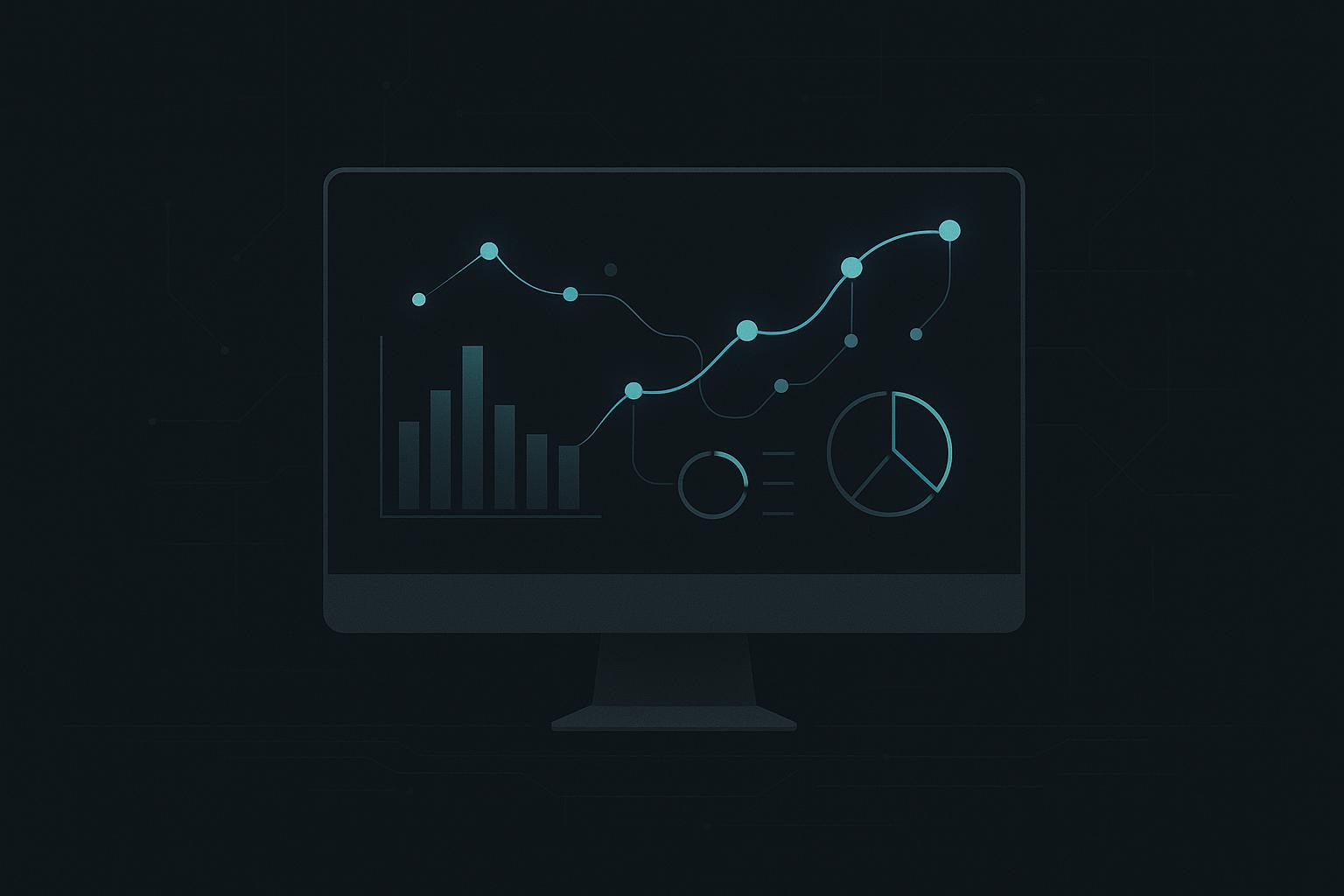Web scraping is transforming the automotive industry. Companies use it to collect data like vehicle prices, specs, and customer reviews from dealership sites, manufacturer portals, and review platforms. This data powers smarter decisions in pricing, inventory management, and customer insights.
Key Takeaways:
- Real-time market analysis: Adjust pricing based on trends.
- Competitive research: Monitor rivals' inventory and strategies.
- Customer sentiment analysis: Use reviews to improve products and services.
- Stock management: Avoid shortages and optimize supply chains.
Modern tools like InstantAPI.ai make scraping fast and precise, handling challenges like CAPTCHA, dynamic content, and IP blocking. Legal compliance remains critical, with laws like GDPR and CCPA shaping ethical data collection. Web scraping helps businesses stay competitive, forecast demand, and adapt to market changes effectively.
Web Scraping Uses in Automotive
Market Research and Competition
Web scraping helps automotive businesses keep tabs on their market position and rivals. By collecting data from various sources, companies can track:
| Data Type | Business Value | Key Metrics Tracked |
|---|---|---|
| Vehicle Listings | Understanding market demand | Pricing trends, inventory age, regional differences |
| Competitor Catalogs | Assessing product strategies | Features, specifications, promotional deals |
| Parts Pricing | Improving supply chain decisions | Wholesale costs, retail margins, availability |
| Market Trends | Planning strategies | Popular models, seasonal shifts, regional preferences |
This information supports better stock management and smarter supply decisions.
Stock and Supply Management
Accurate supply data is critical for managing inventory effectively. Web scraping enhances operations by monitoring:
- Availability of parts across different suppliers
- Lead times for essential components
- Trends in warranty repairs
This helps avoid stock shortages and ensures inventory levels are optimized. Businesses can run lean operations without risking service quality or part availability.
Customer Review Analysis
Customer sentiment plays a big role in shaping strategies. Since many buyers rely on reviews, web scraping offers a way to quickly gather and analyze customer feedback.
Here’s how it works:
- Social Media Monitoring: Tracks brand mentions and feedback on social platforms to gauge customer satisfaction in real-time.
- Review Aggregation: Collects reviews from forums, dealer websites, and review platforms to spot recurring issues or positive feedback.
- Sentiment Tracking: Analyzes customer sentiment to understand brand perception and satisfaction, enabling proactive responses to concerns.
This data directly impacts product updates, service enhancements, and marketing efforts, helping automotive companies stay ahead.
Web Scraping a Car Dealer Website with Beautiful Soup & ...
sbb-itb-f2fbbd7
Web Scraping Tools for Automotive
Modern tools for automotive web scraping are designed to handle complex data extraction with precision, addressing the unique demands of the industry.
InstantAPI.ai Platform Overview

InstantAPI.ai provides powerful features tailored for automotive data scraping. Here's a look at what it offers:
| Feature | Benefit for Automotive Industry |
|---|---|
| JavaScript Rendering | Handles dynamic dealer websites and inventory systems effortlessly |
| Global IP Coverage | Gathers data from over 195 countries for international analysis |
| Real-time Processing | Tracks pricing and inventory changes instantly |
| Custom Formatting | Organizes vehicle specs and pricing data in formats you need |
With a success rate exceeding 99.99% and a cost of just $0.005 per page, InstantAPI.ai is accessible for businesses of all sizes. Juan from Scalista GmbH shared his experience:
"After trying other options, we were won over by the simplicity of InstantAPI.ai's Web Scraping API. It's fast, easy, and allows us to focus on what matters most - our core features."
These features highlight why certain capabilities are indispensable for automotive data extraction.
Must-Have Tool Features
When choosing web scraping tools for automotive businesses, look for these key capabilities:
| Feature | Purpose | Benefit |
|---|---|---|
| Automated Proxy and CAPTCHA Management | Prevents disruptions during scraping | Ensures consistent data collection |
| AI-Powered Analytics | Processes complex data sets | Reveals market trends and pricing insights |
| Flexible API Integration | Works with existing systems easily | Simplifies workflow automation |
For automotive companies, reliable tools are essential for managing high volumes of data. Accurate data extraction supports critical tasks like:
- Tracking inventory across various locations
- Analyzing prices and market trends
- Extracting detailed product specifications
- Processing customer feedback
AI-powered analytics transform raw data into actionable insights, improving inventory management, pricing strategies, and customer feedback analysis.
Common Issues and Solutions
Web scraping in the automotive industry comes with legal, technical, and quality challenges. Addressing these is key to gaining accurate market insights and improving operations.
Legal Guidelines
Automotive companies need to navigate the legal aspects of web scraping carefully. Recent court rulings have generally allowed the collection of publicly available data, offering businesses a clearer path for gathering vehicle information.
| Legal Consideration | Compliance Requirements | Potential Penalties |
|---|---|---|
| GDPR Compliance | Limit data collection, obtain user consent | Fines up to $21.8 million or 4% of global revenue |
| CCPA Requirements | Provide privacy notices, allow opt-outs | Penalties vary |
| Copyright Laws | Obtain permission for content use | Fines up to $150,000 per violation |
In early 2024, a U.S. Federal court ruled in favor of Bright Data in the Meta vs Bright Data case, affirming that scraping publicly accessible data is lawful under current regulations. However, legal concerns are just one piece of the puzzle. Many automotive websites use advanced anti-scraping technologies that require technical expertise to overcome.
Technical Barriers
Automotive websites often deploy measures to block scraping, which calls for strategic technical solutions.
| Challenge | Solution | Implementation |
|---|---|---|
| IP Blocking | Rotating IP Pool | Use a diverse pool of IP addresses across regions |
| Dynamic Content | Headless Browsers | Leverage tools like Puppeteer or Selenium |
| Rate Limiting | Request Timing | Add 3–5 second delays between requests |
These defenses are designed to protect the websites' data. To ensure the information gathered is reliable, businesses also need robust quality control methods.
Data Quality Control
AI-driven tools play a crucial role in maintaining data accuracy by identifying patterns, structuring information, and eliminating duplicates.
| Quality Measure | Implementation | Outcome |
|---|---|---|
| Pattern Recognition | AI anomaly detection | Achieves up to 99.5% accuracy |
| Structured Data Extraction | NLP-based processing | Ensures consistent and precise data |
| Duplicate Detection | AI-powered filtering | Effectively removes redundant data |
Conclusion
Key Benefits Review
Web scraping is changing the game for automotive market intelligence. Companies using AI-powered scraping tools report collecting data 30–40% faster than older methods. With accuracy rates as high as 99.5%, this technology has become a powerful tool for market analysis and decision-making.
Here’s how it’s making an impact across the industry:
| Business Area | Impact | Measurable Outcome |
|---|---|---|
| Predictive Analytics | Better demand forecasting | Improved production planning |
| Scenario Planning | Risk assessment modeling | Smarter strategic decisions |
| Digital Innovation | Automated data processing | More efficient operations |
| Market Adaptation | Faster market responses | Stronger competitive position |
Looking ahead, web scraping's role in automotive innovation is set to grow even further.
Industry Outlook
As more businesses adopt AI-enhanced scraping tools, the automotive sector is seeing a shift in how data is collected and used. A projected 17.8% annual growth rate highlights the growing reliance on advanced tools for data analysis and insight generation.
This shift is particularly noticeable in areas like inventory management and pricing strategies. By combining AI with web scraping, companies can process large datasets, adapt to market changes, and ensure compliance with regulations - all while gaining actionable insights in real time.
For the industry to thrive, businesses must balance the adoption of these tools with ethical data practices and regulatory standards. Companies that focus on high-quality data and responsible usage will stand out in a market increasingly driven by data and technology.


